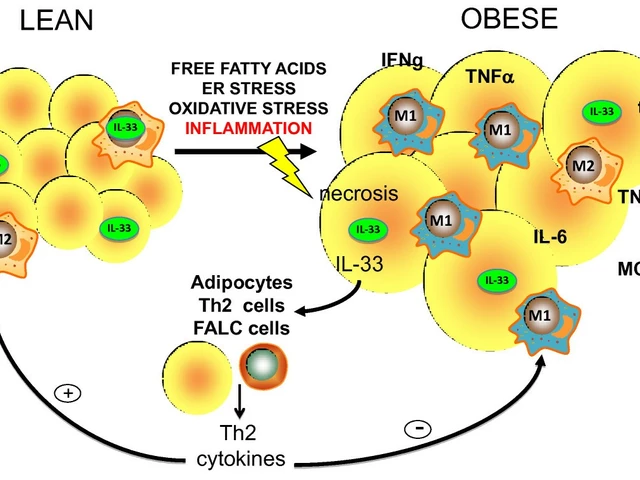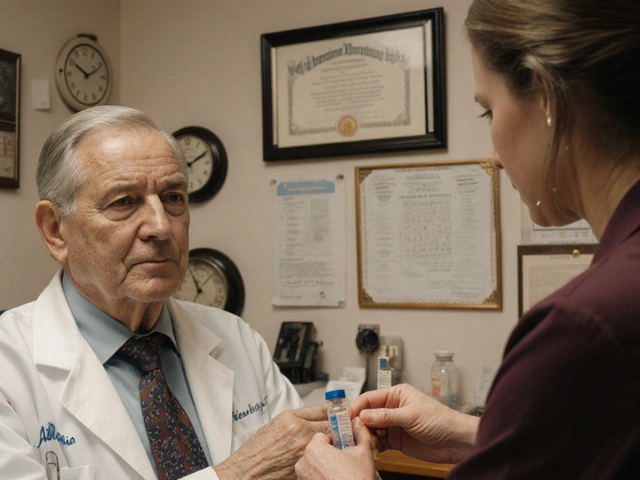Cancer treatment: clear options and what to do next
Facing cancer is overwhelming. You need clear options, practical next steps, and sources you can trust. This page pulls together straightforward info on common treatments, side-effect tips, where to look for trusted medications, and how to talk with your care team.
Main treatment types you’ll hear about
Surgery removes a tumor when doctors think it can be taken out safely. Radiation uses high-energy beams to kill cancer cells in one area. Chemotherapy uses drugs that travel through the body to attack fast-growing cells. Targeted therapy aims at specific cancer features, so it can hit cancer with fewer effects on healthy cells. Immunotherapy helps your immune system spot and fight cancer. Often doctors combine these approaches depending on cancer type and stage.
Want specifics? Ask your oncologist why they recommend a certain route. If you get two options, ask for the benefit, the likely side effects, and the recovery timeline. Get a written summary so you can compare later.
Managing side effects and practical tips
Side effects differ a lot by treatment. Chemo commonly causes nausea, tiredness, and low blood counts. Radiation can cause skin changes and fatigue in the treated area. Targeted drugs and immunotherapy have their own profiles—rash, diarrhea, or immune-related reactions. Track symptoms daily in a simple notebook or app. That record helps your team adjust doses or add supportive meds quickly.
Small, helpful steps: stay hydrated, follow nutrition guidance from your care team, keep up with vaccinations as advised, and report fevers or sudden swelling right away. For surgery or long hospital stays, ask about clot prevention—immobility and some surgeries raise clot risk, so there are clear measures to reduce that.
Some patients explore supplements and supportive compounds. For example, lentinan (from shiitake mushrooms) has been studied as an immune-support adjunct in certain settings. That doesn’t replace standard care. Always discuss any supplement with your oncologist before starting it.
Thinking about medication access? Many of our articles explain how to find safe pharmacies, avoid online scams, and verify prescriptions. If you must order meds online, look for clear contact info, verified pharmacy licenses, and require a prescription. Don’t buy from sites that ship without one.
Want new options? Ask about clinical trials. Trials can give access to cutting-edge drugs and careful monitoring. Your care team or sites like clinicaltrials.gov can help you search trials that match your cancer type and health status.
One last practical point: get a second opinion when you can. A fresh review can confirm the plan or offer alternatives like different drug combos, clinical trials, or organ-sparing approaches. Bring your scans and pathology reports to make the second opinion useful.
If you need quick next steps: 1) write down your questions, 2) bring a family member or friend to appointments, 3) track daily symptoms, and 4) verify pharmacies and prescriptions. If something feels urgent—new severe pain, fever, breathlessness—contact your care team or emergency services immediately.
Use the articles on this tag to learn more about specific drugs, how to safely buy meds online, and supportive care ideas. Talk openly with your medical team—clear facts and teamwork make treatment safer and more manageable.

Understanding the importance of PI3K pathway inhibition in cancer treatment: The role of alpelisib
So, let's dive into this fascinating world of cancer treatment, shall we? You see, this cool dude named PI3K pathway plays a big role in cell growth and survival, and guess what? It's often overactive in certain cancers, so inhibiting it could be like the secret party pooper to cancer's wild party! Now, meet alpelisib, the new kid on the block, who's doing a fantastic job at this inhibition game. So, in a nutshell, understanding this PI3K pathway and the role of alpelisib could be a big game-changer in the world of cancer treatment. Let's keep our fingers crossed and hope for the best!
Health and MedicineLatest Posts
Tags
- online pharmacy
- medication safety
- generic drugs
- medication
- dietary supplement
- side effects
- online pharmacy UK
- drug interactions
- mental health
- impact
- online pharmacies
- statin side effects
- dosage
- generic vs brand
- pediatric antibiotics
- antibiotic side effects
- skin health
- health
- pain relief
- dietary supplements




